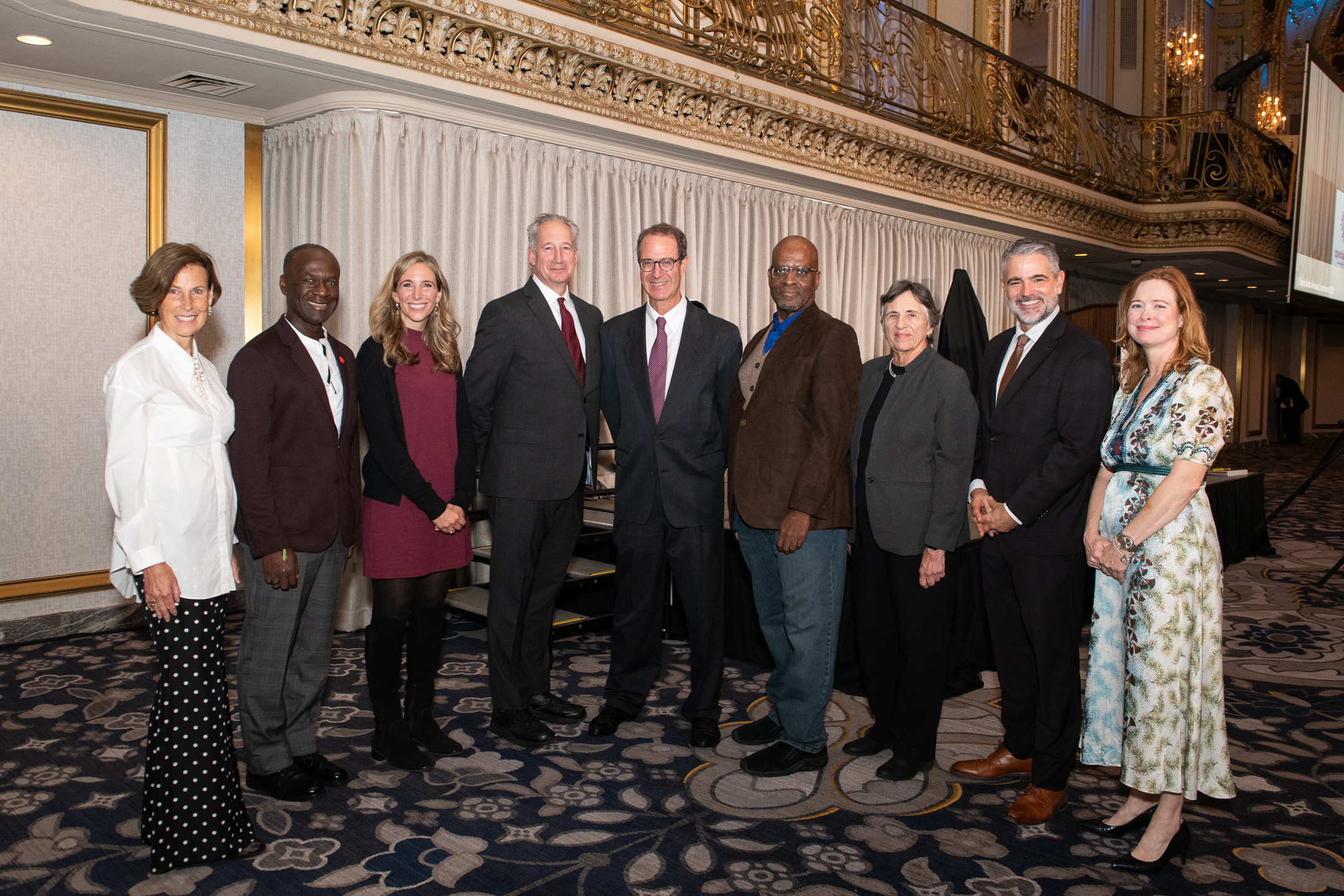Featuring Carol Ross Barney as the keynote speaker and honoring Pulitzer Prize winner Blair Kamin with the Gerald W. Adelmann Conservation Leadership Award
FOR IMMEDIATE RELEASE
Media Contacts
Huan Song, Vice President of External Affairs
hsong@openlands.org
(312) 863-6153
Claudia Latapi, Public Relations and Content Specialist
clatapi@openlands.org
(734) 881- 4795
CHICAGO,IL. – (October 21, 2025) Openlands, one of the most prominent conservation organizations in the region, celebrated its 2025 Annual Luncheon on Friday, October 17, at the Hilton Chicago. This year’s theme, “Elevating the Voice of Nature,” highlighted the urgent and promising intersection between urban growth and the natural world. More than 700 civic leaders, friends, conservationists, corporate partners and passionate community advocates came together to amplify stories of connection with nature, restate their shared responsibility to protect the lands that sustain us, and learn about Openlands’ new 2026-2030 strategic plan, a roadmap for the next generation of conservation leadership in the region.
The organization’s signature fundraising event of the year, opened with a reflection of the moments that connect people with nature. “What we should take from these moments is more than memory or sentiment — it’s responsibility,’’ said Michael Davidson, President and CEO of Openlands. “We are connected through the natural world that sustains us, and yet, the natural world cannot speak for itself. That’s why we are here today: to be that voice for nature — and in doing so, to reaffirm our place within it.”
Even amid a challenging federal landscape, Davidson underscored what’s possible when advocacy and action go hand in hand. This year, Openlands advanced protections across the region—from city street trees to expansive natural areas—and continued its leadership in safeguarding the Chicago lakefront, ensuring this invaluable public asset remains accessible to all. Among other milestones, the organization marked the successful completion of the O’Hare Wetlands Mitigation Project (OMMA), one of the largest restoration efforts in the region’s history. Additionally, Openlands completed 36 new green schoolyards through the Space to Grow program, with five more schoolyards scheduled to open by the end of the year.
Michael Davidson debuts Openlands’ new five-year strategic plan, a roadmap for the next generation of conservation leadership in the Chicago region. The plan conveys urgency and optimism, reinforcing that much remains within our power to change, and doubles down on where Openlands leads best: the unwavering focus on land. Quoting Daniel Burnham’s enduring call to ‘‘Aim high in hope and work,’’ Davidson added, “What we build together now will define the region we inhabit in 2050’’. With this plan, the organization will ensure land is resilient, sustains biodiversity, supports every community and thrives for future generations.
Despite federal challenges and mounting pressure on conservation funding, Davidson emphasized that Openlands’ commitment has never wavered. The plan sets ambitious yet achievable goals for the next five years—laying the groundwork for the next 25 years. Rooted in land as the basis for climate resilience, biodiversity, and livable communities, it centers on five strategic priorities, each reinforcing the others toward one goal: protecting and restoring land.
This year, Pulitzer Prize winner and former Chicago Tribune architecture critic Blair Kamin received the Gerald W. Adelmann Conservation Leadership Award, honoring those whose vision and advocacy have advanced conservation, equity, and access to nature. For 28 years, Kamin used his platform to illuminate how design, planning, and nature intersect in shaping equitable cities and strengthening connections between people and places. In his 1998 Pulitzer Prize-winning series on the Chicago lakefront, Kamin courageously contrasted its often-dismal state with its sterling reputation, envisioning a revitalized public space that would serve all citizens equally, adapt to shifting demographics, and promote a more vital democracy.
“Openlands staff have made this organization one of the nonprofit North Stars that keeps Chicago and its region on course,” said Blair Kamin. “Even as mayors change and the economy rises and falls, you keep the city and suburbs moving toward the eminently worthy goal of preserving and enhancing open spaces that bring us closer to nature and to each other.”
Presented annually, the Gerald W. Adelmann Conservation Leadership Award recognizes individuals and organizations whose work not only advances conservation but also demonstrates the profound impact that dedicated individuals can have on their communities and the planet. Past recipients include civic leaders like Arnold Randall (2024) and Gerald W. Adelmann (2023), whose legacies will continue to inspire new generations of environmental leadership.
Attendees also heard from Carol Ross Barney, the visionary architect behind the renowned Chicago’s Riverwalk and a national leader in sustainable urban design, who delivered a compelling keynote on reimagining Chicago as a “green, resilient sponge city” that works with nature, not against it. “Sustainable cities have to be inclusive. Restoring nature isn’t a luxury anymore—it’s survival,” said Carol Ross Barney. “It’s up to us to protect its rivers, restore its nature, and design a city that’s healthy, resilient and radically sustainable’’. Her remarks inspired the audience to reimagine a future where innovation and nature coexist —with Chicago serving as a model for a greener and more resilient region.
The luncheon closed on a hopeful and collective call to action, reminding guests that protecting nature is both a duty and an opportunity. As Openlands looks ahead, the organization urged partners, policymakers, conservationists, and community members to act boldly to protect land and invest in conservation at the scale this moment demands. Together, their shared commitment will shape a more resilient, equitable, and vibrant region where people and nature can thrive side by side.
About Openlands
Founded in 1963, Openlands protects the natural and open spaces of northeastern Illinois and the surrounding region to ensure cleaner air and water, protect natural habitats and wildlife, and help balance and enrich our lives. Openlands works across areas to advance nature-based solutions to climate change, improve the health and well-being of communities, and create a more verdant region for all. For more information, please visit www.openlands.org
